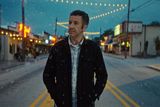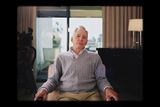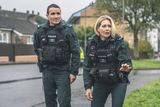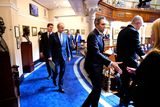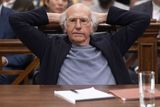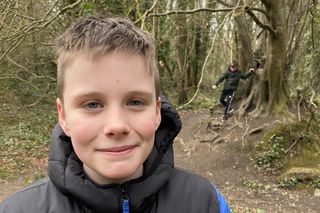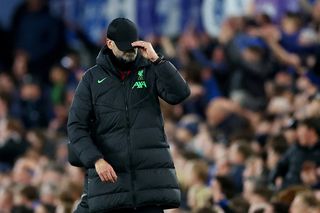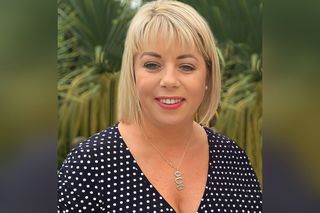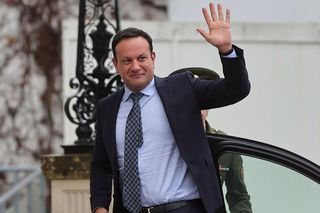Television: There's no place like home when Simon is travelling
European mission: Mary McAleese made two versions of her programme
It was a week for travelling, with Mary McAleese on a spiritual quest throughout Europe, Simon Reeve roaming the four corners of Ireland and Dara Ó Briain fronting a food programme that ventured as far as Shanghai and Sydney.
Let's start with Simon, that impossibly youthful 43-year-old whose previous travels have taken him around the tropics of Cancer and Capricorn, into the Australian outback, down the Nile and the Ganges, and through the volatile countries that border the Caribbean.
This week, though, he introduced us to "an exotic and beautiful land" which was more "gorgeous" and "beautiful" than he'd ever imagined. Yes, it could only be this green and pleasant republic of ours, even if, in the first instalment of the two-part Ireland with Simon Reeve (BBC2), he did venture into the northern six counties, where he was dismayed by the ongoing educational and housing segregation that he found.
Down south, though, everything was hunky-dory, with Simon marvelling at how so many Irish people had thrown off the shackles once imposed upon them by their clerical mentors. "This used to be the most Catholic country in the world," he said in wonderment as he slogged up Croagh Patrick in vile weather and encountered enough pilgrims to suggest that we're still enslaved to old pieties.
Yet, though Simon was here mainly to praise, he didn't shirk from mentioning clerical sex abuse scandals, the ghastly historical treatment of unmarried mothers, or the much-vaunted recent economic recovery from which "many people have been left behind" - indeed, chatting to some of these in a Cork city soup kitchen.
That's the engaging thing about Simon - he's an enthusiast, and a beguiling one at that, but there's always been real grit to his programmes, too, as he insists on telling it like it is rather than as tourist boards would wish it to be. I look forward to tomorrow night's closing episode, which takes him down the east coast to my own dear old Dublin.
Mary McAleese tells it like it is, too, or at least how she sees it. She was a wonderful president of Ireland, while as a committed Catholic she's been bravely forthright on social and sexual matters that haven't endeared her to church authorities, whether here or in Rome.
But it was in Rome that she began her film on Columbanus - or, rather, her films, because there were significant differences between the BBC2 transmission of the film on Sunday night and RTÉ1's screening of it two nights later. For starters, the BBC version was called Mary McAleese and The First European, while RTÉ's was titled Mary McAleese and the Man Who Saved Europe. Even more oddly, the BBC2 version was conducted through Irish and RTÉ's through English, which meant that both the presenter and her interviewees had to be filmed twice, which may have accounted for some, though not all, of the noticeable editing differences between both versions.
But whatever version you looked at (and I thought the English-language one more forceful), the message was the same, with McAleese telling the story of a sixth-century Irishman who, in a Europe "divided over religion and tribal allegiances", founded centres of learning and spirituality that "preserved western culture and civilisation" - and whose example "could still bring people together" in a Europe that's currently in a similar crisis.
Cynics would scoff that such a thing isn't going to happen, while sceptics would deem it a fond hope, but she argued her case with passion and along the way I learned quite a lot. However, I learned little from the first instalment of Tomorrow's Food (BBC1), which opened with Dara Ó Briain in a greenhouse in Kent that was the size of 49 football pitches and that produced zillions of temperature-controlled tomatoes.
But what did they taste like? He didn't say.
Then a group of teenage girls were offered a pizza that a vending machine had produced in three minutes. What was the pizza like? The girls weren't asked.
After that we were off to a Shanghai restaurant where a meal was served by robots, as if anyone cared, while back in London celebrity chef Angela Hartnett tested a decanter which supposedly made cheap plonk taste better. Oh, enough of such gimmickry.
In its ongoing mission of health-and-fitness do-goodery, RTÉ2 came up with Bressie's Ironmind, which I was prepared to hate (I can't stand the manufactured competitiveness of Ireland's Fittest Family) but which turned out to be quite absorbing, mainly because of its four volunteers.
These two men and two women have been suffering, to various degrees and in different ways, from depression and anxiety, and the stories they told were affecting, with single mother Orla from Bundoran especially likeable in this opening instalment of the series.
Former pop star Bressie turned out to be an engagingly concerned and unpushy presence as he tackled the same athletic challenges that they were being asked to attempt.
If we must have such reality shows, let them be as winning as this.
Join the Irish Independent WhatsApp channel
Stay up to date with all the latest news

